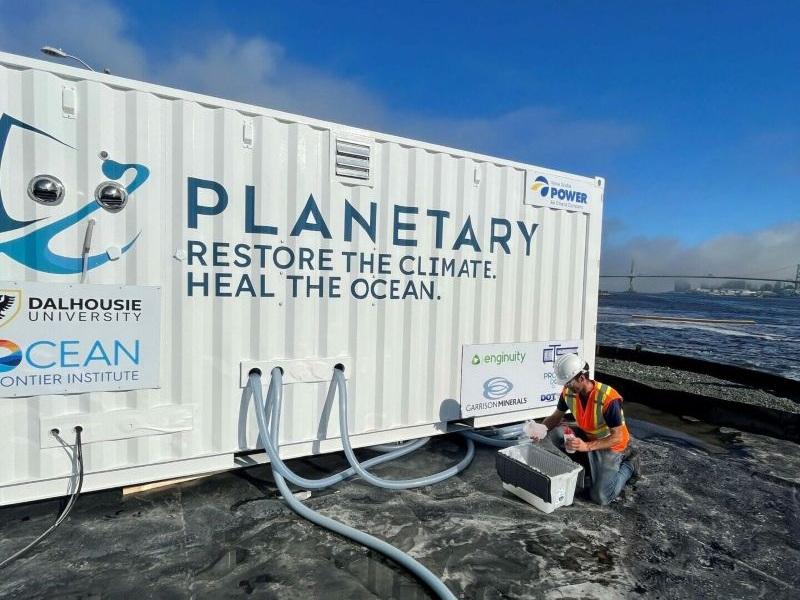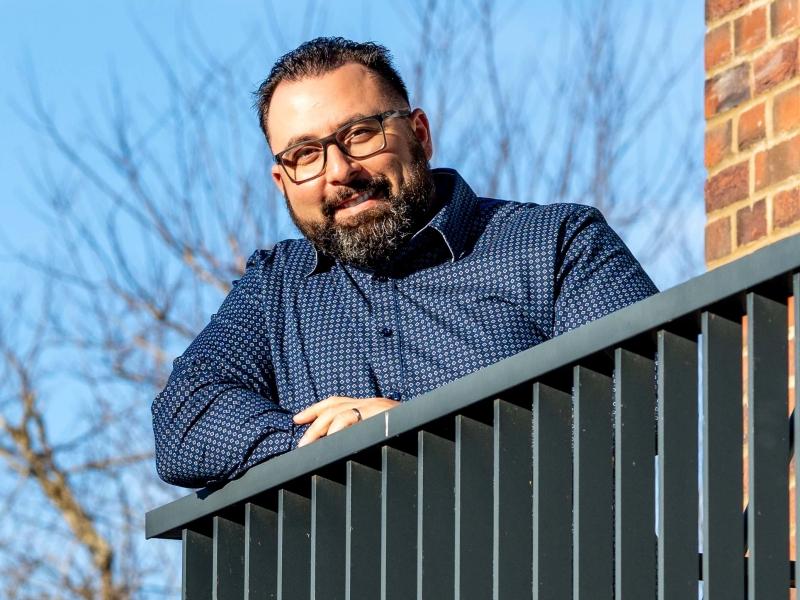
Esteban Sanchez, a 29-year-old Vancouverite, is not only taking on greenhouse gas emissions with his company's commuting data platform; he also hopes to help make cities healthier and more livable.
Sanchez, who was featured on the Forbes 30 Under 30 – Social Impact list, is the co-founder and chief technology officer of Commutifi, a Boulder, Colo.-headquartered company with an office in Canada.
By tapping into how a company’s employees are commuting to work, Commutifi can help develop a picture of Scope 3 emissions and create ways a company can tackle indirect pollution through incentivizing public transit, carpooling or other options.
The core issue Sanchez hopes to take on is the number of cars on the road, which create gridlock, less livable cities and climate-warming pollution.
“We have the technology and we have what we need, so how do we create that change? With my co-founder Rich Schmelzer, we decided there’s a need for change in the transportation space and commuting is where there is a really big opportunity,” he said in an interview with Sustainable Biz Canada.
From young entrepreneur and university dropout to executive
Sanchez was entrepreneurial as a youth, learning to code at age 12 and starting businesses in high school. He was “always interested in creating things,” and leveraged that desire into creating an online games studio when he was 14 years old.
Still in high school, he partnered with Schmelzer (described as a “serial entrepreneur” by Sanchez) on other businesses. He became the vice president of a startup creating fitness trackers for children and co-founded BluCar, a startup for parking services.
For two years, he attended Polytechnique Montréal for software engineering, but spent more time on entrepreneurship than his studies. He dropped out to build a digital agency called Volume7 with two friends.
As he was trying get children to be more active, he noticed cars and parking spaces were a problem in cities. Instead of asphalt parking spaces, he sees potential parks and community spaces.
Even with innovations such as rideshare apps and micromobility like e-bikes and scooters, “Everyone continued driving and ingrained the habit.”
Customs had to be changed, he realized, so he co-founded Commutifi with Schmelzer to get people off four wheels and onto more sustainable options.
Sanchez himself owns a car and considers them “a great invention." He acknowledges the need and accepts that cars will remain a permanent part of society, but believes there must be a better balance between automobiles and other transportation choices.
By changing people’s behaviours and facilitating more sustainable transportation choices, he hopes to reduce greenhouse gas emissions and build more liveable, healthier cities.
“For me, Commutifi is more than climate. It’s multi-faceted. We’re fixing climate issues, but we’re also making cities more livable.”
Driving commuter decarbonization
Commutifi helps corporate, municipal, real estate and institutional clients reduce their indirect transportation emissions, which first starts by getting the data.
The company takes pre-existing data from the client or conducts a survey to examine where employees are commuting from, how they are commuting, the emissions from their travel and the cost to the company.
The figures are analyzed and used to shape recommendations such as a transit subsidy for employees, bringing e-bikes on campuses or a carpool program. This helps realize cost savings, reduces emissions and helps with employee retention, Sanchez said.
Commutifi’s consulting also extends to providing transportation data for LEED, as commuting is part of the green building certification. Sanchez said Commutifi is one of LEED's few external partners that can perform this task.
Though sustainability is a pillar of its offering, Sanchez said Commutifi’s success is from offering more than just an environmental service.
“The most successful environmental startups are actually delivering a better product or value in general and it happens to be environmental," he said.
Pitching the environmental benefits is not enough in North America; he has to demonstrate superior mobility to really move the needle.
The company counts multinational corporations with thousands of employees as customers, including three Fortune 20 companies, Sanchez said. Business comes from the U.S., Canada and Europe.
He could not disclose the identity of corporate partners due to non-disclosure agreements, but Sanchez could say his company has partnered with Metro Vancouver’s Translink on a pilot project and the Washington DC Department of Transportation.
Last year, Commutifi achieved $10 million in revenues, and is reinvesting profits back into the business as part of its interest in sustainable growth.
Forbes and the future of Commutifi
When asked about his listing on the Forbes 30 Under 30 list, Sanchez preferred to keep the spotlight on others.
He used the recognition by Forbes to highlight Commutifi’s team of 15 staff members, pointing out the company has retained every employee over the past five years.
While it is “an honour to be listed among many other successful entrepreneurs who are doing meaningful work,” Sanchez said nothing has changed, and hopes it will be one milestone among many to come.










